We’ve all had one of those days. You are in a rush to go somewhere and suddenly as you insert your automotive keys into the car door lock, you realize the key is not working.
At this point, you’re embarrassed. You start guessing what could be the problem. Often the answer comes to your mind easily, while other times you will think long and hard about what the cause may be.
We all went through a difficult time like this. In order to alleviate the headaches these issues can cause, we’re going to go over some of the reasons why your key isn’t working. Whether you have traditional car keys or automotive keys, understanding their specific functionality is crucial.
In order to diagnose the source of your problem, you need to know the type of key you have and how it works with your vehicle.
There is a misconception circulating that goes as follows: since the keys are used to operate a car, they must all match. Is that true? Unfortunately, no.
Although car keys are similar in many ways, they are all unique (which is why they resist the knock-on key method). Automotive keys, for instance, come in various types, each designed for specific functions and security measures.
So, it is important to understand your type of auto key in order to properly diagnose your key problem. Previously, the most common key was a physical key that engaged in your lock and acted according to your contact.
Chances are, if your vehicle was manufactured before 1995, you have this type of key. After 1995, most auto manufacturers started releasing smart keys.
Transponder Key
The transponder key is essentially a more secure way to link your key to your vehicle. There is a transmitter embedded in the key, which transmits a signal to a receiver housed in the vehicle. This technology, often used in automotive keys, provides an additional layer of security by ensuring only the correct key can start the car.
For the car to start, the transmitter and the receiver must exchange a series of signals that are used to verify that it is the correct key.
Today, the majority of modern cars are designed with this transmission device introduced by smart keys. This advancement has also led to the development of keyless entry systems.
A keyless controller contains several buttons, each of which contains a function.
The key sends commands to your vehicle to perform various actions. The smart key serves the same functions as a traditional key except that everything is done with push buttons.
Why Your Car Key Stopped Working
Now that we have touched on the subject of the differences between auto keys, let’s dive into the very reasons that can cause your automotive keys to malfunction.
It is useful to remind you at first that if your key is broken in the lock, the following text will be of no use to you.
However, contact a locksmith who knows how to extract a broken key or a key stuck in a lock. Let’s start:
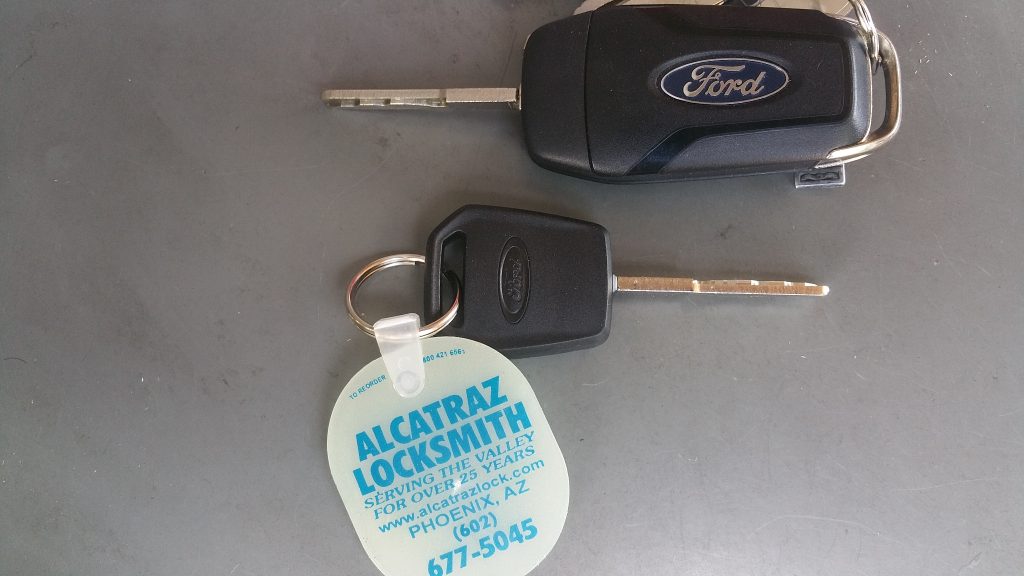
1. Damaged lock
If your car key does not work when you try to unlock your car, there is a possibility that the lock itself is damaged. This issue can often involve automotive keys, especially in older vehicles that rely on physical keys for access.
If you drive a relatively new car, you are less likely to have this problem due to the presence of keyless entry systems. On the other hand, if you have an older car model that requires unlocking with a physical key, you might experience this issue more frequently.
It is likely that your car key is not working because of a faulty or damaged lock.
Car locks work in tandem with the keys, which results in simultaneous wear of the lock and the key. Automotive keys are particularly vulnerable to wear when exposed to constant use and environmental stress.
This is not the only way to use your lock. Since locks are found on the outside of your vehicle, the impact of environmental factors on the condition of your locks should not be underestimated.
This means that your lock can become blocked by the accumulation of debris and dust.
On the other hand, you have to be careful of collisions that can cause great external damage.
2. Damaged key
One of the main reasons your automotive keys malfunction is wear and tear on the key.
When we think of damaged keys, the image of a split key comes to mind.
This is an exaggerated perception that does not do justice to reality. However, a damaged key is not always broken. If you look at how the doors in your car work, you can see why. The notches in the key correspond to internal mechanisms of the lock or the ignition.
Keys, including automotive keys, are physical components that may not always stand the test of time. Most of us don’t pay attention to how much wear and tear affects keys and locks over time.
When we add a lack of maintenance to this natural wear, it creates a perfect recipe for a damaged key.
If the notches in your key deteriorate over time and the key is no longer able to operate the internal mechanism of the lock, it is potentially damaged. This is often the reason why your car key or automotive key stops working properly.
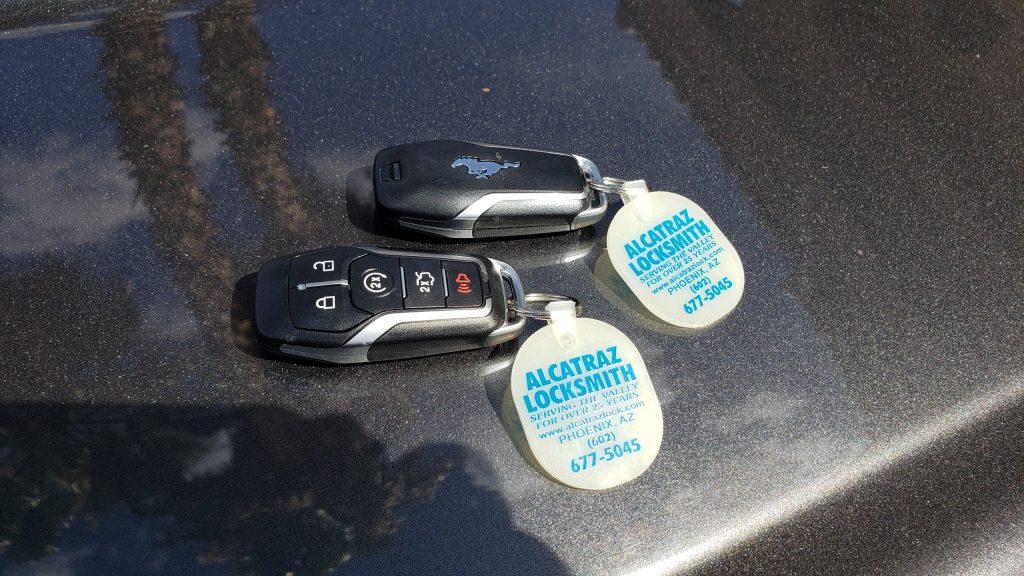
3. Defective Contact Cylinder
Your key is not only associated with your door locks, it also works with the ignition of the engine. Car keys have several functions.
For every key that exists, there is a lock or mechanism that works with it.
If your car key does not work when you insert it into your ignition, that does not mean that your car key is necessarily damaged or defective.
Sometimes we are dealing with a symptom of a larger problem: a faulty contact with your car.
Cars are always mobile units of mechanical components. All of these components degrade over time and contact is no exception.
4. Auto Key Batteries Are Dead
Sometimes you don’t have to look any further than the batteries of your transponder key, electronic key fob, or other automotive keys.
This is a common problem with an equally common solution.
Batteries die over time, so diagnosing this problem is relatively straightforward.
If you notice that your vehicle is not responding to commands and signals sent to your vehicle, there is a good chance that the batteries have run out of juice.
When you realize that your smart key is no longer working because of the batteries, the easiest solution is to find the right batteries and replace them. However, keep in mind that this may not be the only reason that your automotive keys have stopped functioning. Once the battery replacement is done, your key should work like new.
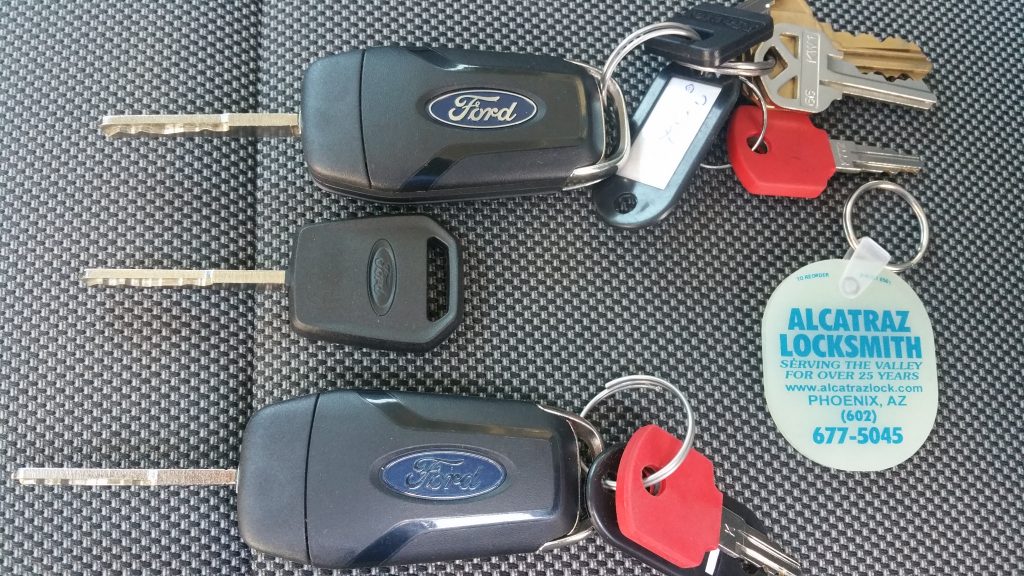
5. Internal Damage to Keyless Entry Systems
As I mentioned earlier, there are several types of keys that have their own characteristics and traits, including automotive keys. The smart key establishes communication between a transmitter and a receiver. So, if one of the components is defective, your automotive key will not work correctly.
If the problem is with your car’s electronic system or there is damage to your receiver or transmitter, the automotive key will not function properly.
Sometimes, the components of these electronic systems will wear out, and this wear is often manifested by bare, cut, or damaged wires.
In other cases, damaged internal wiring may result from external damage to the chip key itself.
These problems arise when we drop the key or it receives a hard impact that shifts the internal alignment of the key’s components.
6. The Key Has Not Been Programmed
Even traditional keys have to go in a car.
On the other hand, technological advancements in the automotive industry have changed the way we think about this pairing. Now, the way car keys are paired with cars adds a higher level of protection.
This is accomplished through transmitters, which are put in place to facilitate the interaction between the key and the car and thereby make the car protection more difficult to circumvent.
The traditional keys do not have programming bugs, as one can meet with the transponder keys and the joysticks.
If your key does not work with your vehicle, it is possible that this key has not yet been programmed with your car.
It is common to forget to reprogram your transponder key when you acquire a new one or when you make duplicates.
If this is not done correctly, the key’s functions will be limited to opening your doors or your suitcase.
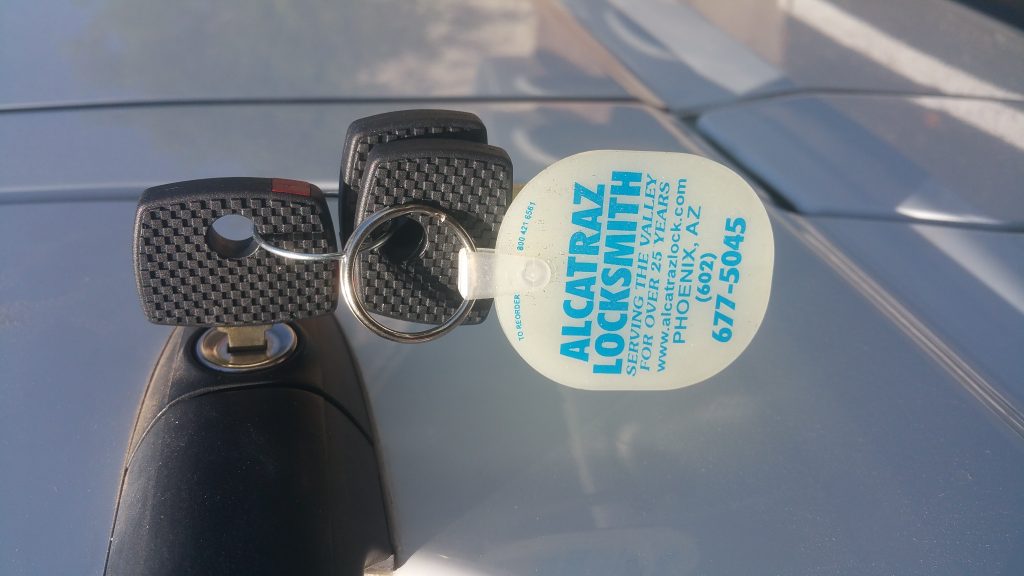
7. Auto Keys From Spare Parts Markets
Car keys that can be purchased at service parts stores are a cheap option to replace or find a duplicate for your key. Before purchasing from this type of reseller, it is essential to understand the risks that these types of keys pose, especially when it comes to automotive keys.
We often forget to keep a clear head when the urgency of replacing a key bothers us and slows us down in our day.
If you buy a used key and don’t reprogram it, your key won’t work anymore. Used stores are a good place to get all kinds of automotive items.
However, keep in mind that some parts, including automotive keys that were not designed for your vehicle, require extra work for them to function properly.
So, it is very important to make sure that your used key is programmed correctly so that it works well with your vehicle.
8. You Use a Duplicate Key
Duplicate keys are popular with drivers, and with good reason. This gives you the peace of mind that the chances of getting caught out when you get into a collision outside your car are less. You will have the luxury of sharing your automotive keys with a family member when they want to use your car.
However, many people do not realize that any duplication of keys reduces the integrity of the original key.
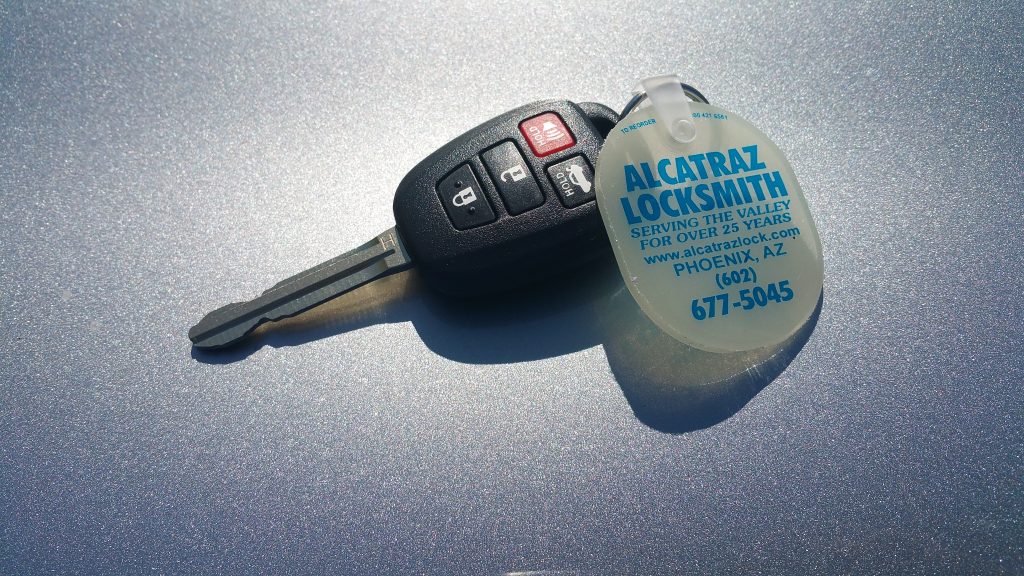
It may seem difficult to grasp, let me explain. Each time your key is duplicated, the duplicate you get differs from the original.
It may seem less important, but this duplication has an impact on how your key works.
In a few scenarios, you will find that your car key does not work simply because of the difference between the copy and the original.
Having a duplicate is often a more affordable option than getting a new key cut to code.
However, this is not always the best scenario for your safety.
Need help with locks, keys, or security solutions? Our expert team at Alcatraz Locksmith is here to assist you. Whether you’re locked out, need a lock repaired, or are looking for advanced security solutions, we’ve got you covered.
For fast, reliable, and professional locksmith services, don’t hesitate to contact us. We’re just a call away!
Frequently Asked Questions
What are automotive keys, and how do they work?
Automotive keys are specialized keys designed to operate various locks and ignition systems in vehicles. Traditional automotive keys are physical metal keys, while modern automotive keys include transponder keys and key fobs that communicate electronically with your vehicle’s security system. These automotive keys ensure only authorized access to your car.
Why isn’t my automotive key working?
There could be several reasons why your automotive key isn’t working. It might be due to a damaged key, a faulty lock, dead batteries in your key fob, or issues with your vehicle’s ignition system. Diagnosing the problem is essential to finding the right solution for your automotive key issues.
How can I tell if my automotive key is damaged?
If your automotive key is worn, bent, or cracked, it may not work properly. The notches on the key may be deteriorated over time, preventing the key from engaging the lock or ignition correctly. If your key is physically damaged, it’s best to replace or repair it.
What types of automotive keys are available?
There are several types of automotive keys available, including traditional metal keys, transponder keys, and key fobs for keyless entry systems. Transponder keys contain embedded chips that communicate with the vehicle’s security system, while key fobs allow for remote locking, unlocking, and starting the vehicle.
Can automotive keys be duplicated?
Yes, automotive keys can be duplicated, but it’s essential to ensure that the duplicate key is properly programmed to work with your vehicle’s security system. While traditional keys can be easily copied, transponder keys and smart keys require specific programming to function correctly with your car.
